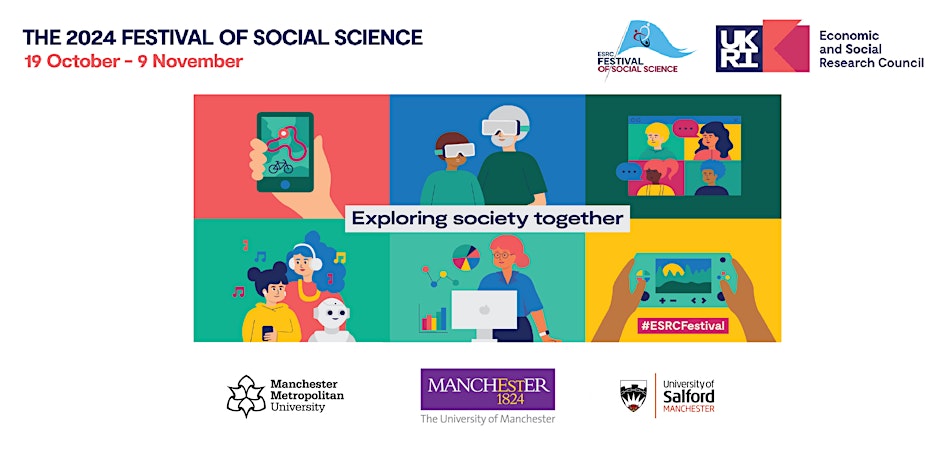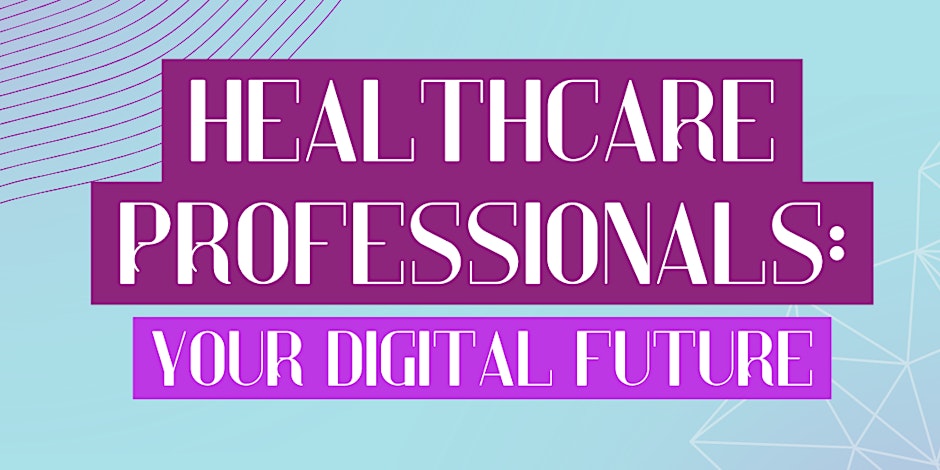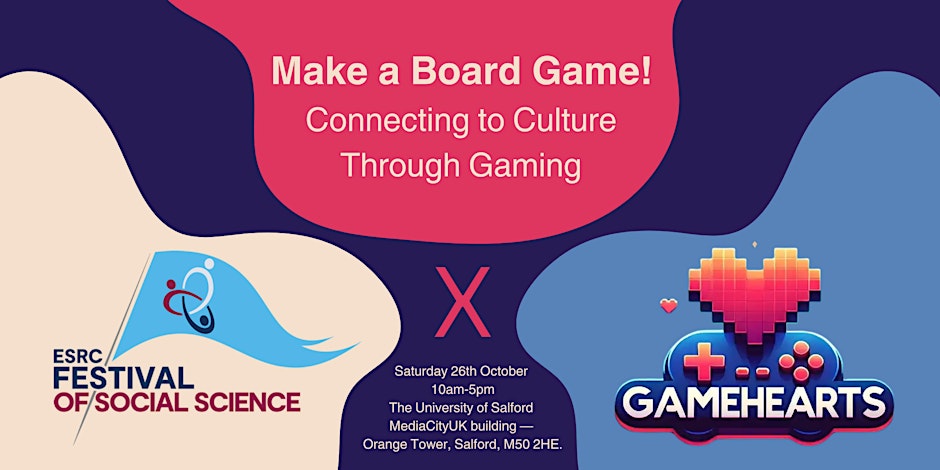This year, the ESRC Festival of Social Science has themed events focussing on ‘Our Digital Lives’, exploring the relationship between humans and technology. A number of staff from the Digital Society Research Theme, in the Centre for Research on Inclusive Society are running events. The events reach out to different audiences and cover a range of topics including health, money, sex and leisure. Joining us at these events are a number of national and international external collaborators.
We hope you find something of interest!
Dr Lisa Garwood-Cross and Professor Ben Light
Digital Society Research Theme Co-Leads
Festival Launch
16 October | 2:00 pm – 4:00 pm

The University of Salford is hosting the launch of the Festival across Manchester with speakers from Salford, Manchester Metropolitan University and the University of Manchester. At this event you can discover groundbreaking research through a series of engaging lightning talks by leading Manchester based social scientists. These talks will cover various aspects of our digital lives, including the relationship between humans and digital technology, the influence of digital media on our behaviour, and the future of digital innovation. Some of our digital society research will be showcased here. More details and book
Our Digital Lives – Discovery Trail
23 October | 10:00 am – 5:00 pm

Bring the family along for a free interactive trail for all ages at Salford Museum and Gallery. This is the University of Salford’s flagship festival event, developed and led by Digital Society Research Theme Co-Lead, Dr LIsa Garwood-Cross, and including a team from the School of Health and Society, the University of Salford and the University of Manchester. Come and explore digital technology in our everyday lives. There are activities to suit all ages, from Under 5s right through to retirees. Drop in throughout the day at a time that suits you! Explore digital technology through crafts, art, talks, video, making TikToks and even try your hand at recording a podcast. All inspired by expert research! More details – no booking necessary
Healthcare Professionals: Your Digital Future
23 October | 5:30 pm – 6:30 pm

Join Dr Lisa Garwood-Cross (University of Salford) and Professor Kath Albury (the Swinburne University of Technology, Australia) for an online CPD event exploring digitisation and the future of work for health care. All health workers are finding themselves working with, and reliant on, a diverse range of digital technologies. Come and find out what this might all mean for you. More details and book
Make a Board Game!
Connecting to Culture Through Gaming
26 October | 10:00 am – 5:00 pm

A Game Jam is coming to MediaCity:UK! Game jams are concentrated explosions of creativity with one goal: make a game by the end of the allotted time. Join Prof Garry Crawford, Dr Gaynor Bagnall, Dr Neta Yodovich and Dr Charlotte Gislam from the Gamehearts Team to find out more about games and culture, and make a game yourself. The whole family is welcome and lunch is provided. More details and book

These events have been made possible thanks to funding from the Economic and Social Research Council (ESRC), which is part of UK Research and Innovation (UKRI).